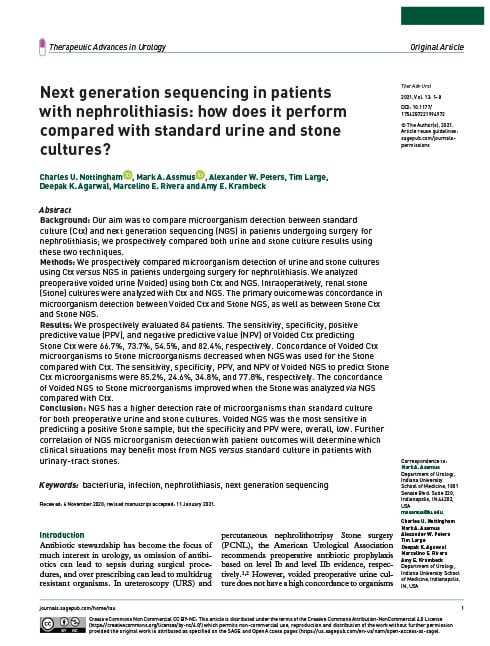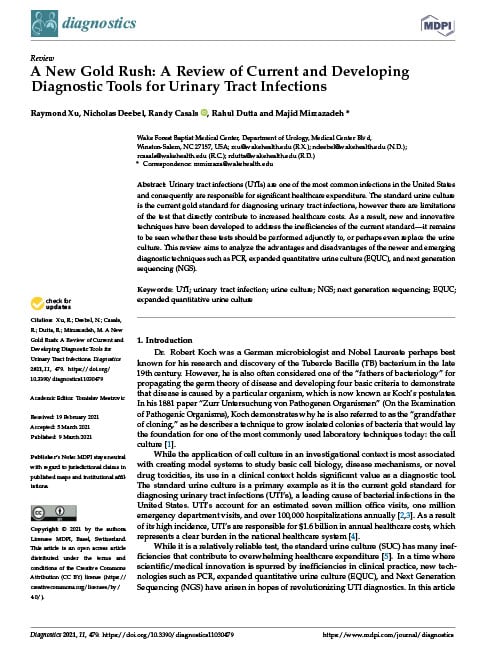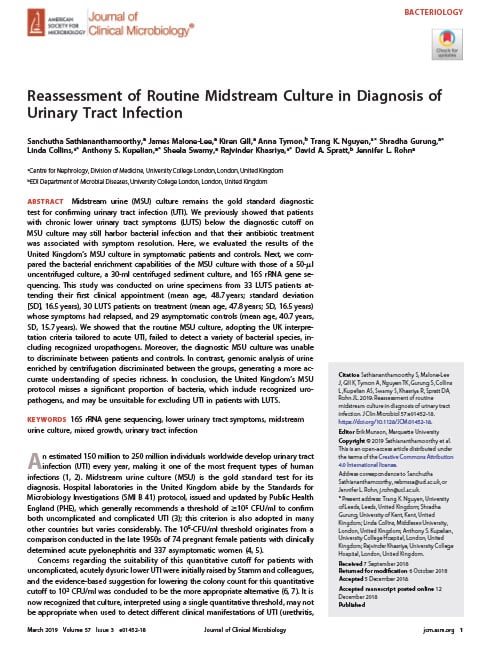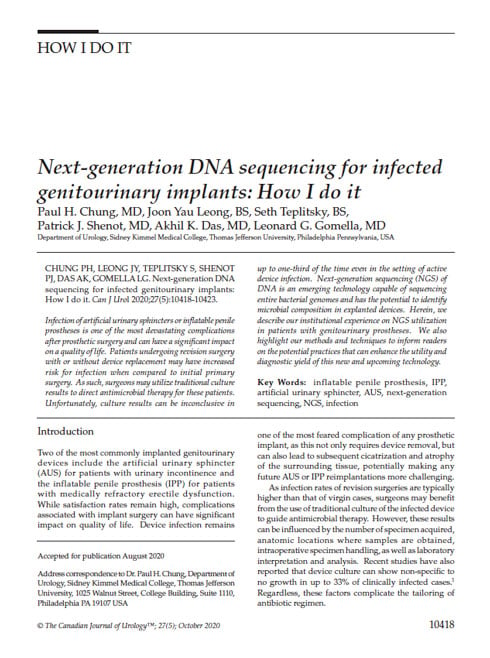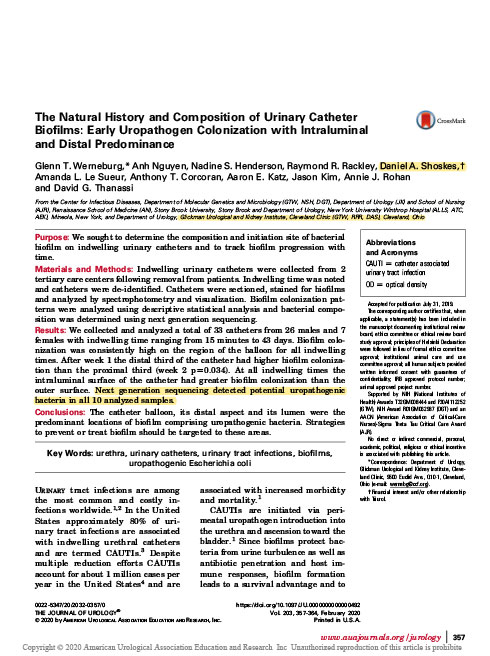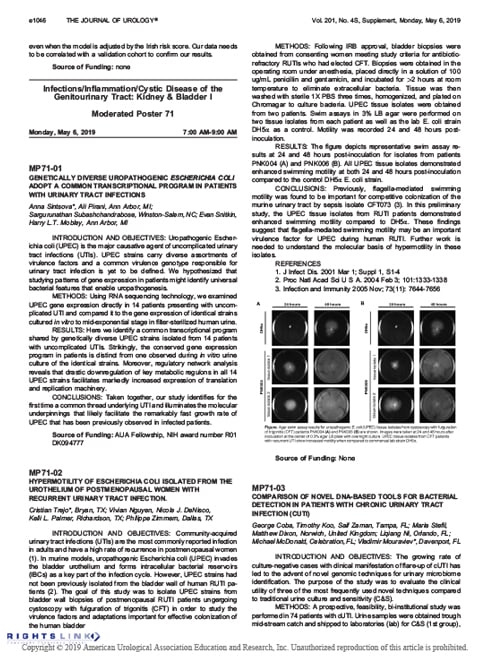Therapeutic Advances in Urology 2021, Vol. 13: 1–8
Article: Our aim was to compare microorganism detection between standard culture (Ctx) and next generation sequencing (NGS) in patients undergoing surgery for nephrolithiasis; we prospectively compared both urine and stone culture results using these two techniques. Read Article
- Therapeutic Advances in Urology 2021, Vol. 13: 1–8 Article: Our aim was to compare microorganism detection between standard culture (Ctx) and next generation sequencing (NGS) in patients undergoing surgery for nephrolithiasis; we prospectively compared both urine and stone culture results using these two techniques. Read Article…
- Diagnostics 2021, 11, 479 Article: Urinary tract infections (UTIs) are one of the most common infections in the United States and consequently are responsible for significant healthcare expenditure. The standard urine culture is the current gold standard for diagnosing urinary tract infections, however there are limitations of the test that directly contribute to increased healthcare costs. Read Article…
- Journal of Clinical Microbiology March 2019 Volume 57 Issue 3 Article: Midstream urine (MSU) culture remains the gold standard diagnostic test for confirming urinary tract infection (UTI). We previously showed that patients with chronic lower urinary tract symptoms (LUTS) below the diagnostic cutoff on MSU culture may still harbor bacterial infection and that their antibiotic treatment was associated with symptom resolution. Read Article…
- Open Journal of Urology Vol.11 No.7, July 2021 Article: This paper aims to determine if the combination of polymerase chain reaction (PCR) and next-generation sequencing (NGS) could identify bacteria in culture-negative urine that would alter prophylaxis management. Read Article…
- The Canadian Journal of Urology. 27(5); October 2020 Prospective Study: Infection of artificial urinary sphincters or inflatable penile protheses is one of the most devastating complications after prosthetic surgery and can have a significant impact on a quality of life. Patients undergoing revision surgery with or without device replacement may have increased risk for infection when compared to initial primary surgery. As such, surgeons may utilize traditional culture results to direct antimicrobial therapy for these patients. Unfortunately, culture results can be inconclusive in up to one-third of the time even in the setting of active device infection. Next-generation DNA sequencing […]
- The Journal of Urology Vol. 203, No. 4S, Supplement, Sunday, May 17, 2020 Study: Chronic prostatitis/ Chronic pelvic pain syndrome (CPPS) is a syndrome that shares clinical features with urinary infections and a certain subset of patients improve with antibiotics. However, traditional cultures of urine and expressed prostatic secretions often fail to identify an organism. Next-generation sequencing (NGS) analyzes microbial DNA and can identify organisms that fail to grow in traditional cultures. We sought to compare traditional cultures with NGS in men with CPPS and examine the impact on symptoms and treatment response. Read Study…
- The Journal of Urology 2020 Feb;203(2):357-364 Study: We sought to determine the composition and initiation site of bacterial biofilm on indwelling urinary catheters and to track biofilm progression with time. Indwelling urinary catheters were collected from 2 tertiary care centers following removal from patients. Indwelling time was noted and catheters were de-identified. Catheters were sectioned, stained for biofilms and analyzed by spectrophotometry and visualization. Biofilm colonization patterns were analyzed using descriptive statistical analysis and bacterial composition was determined using next generation sequencing. Read Study…
- European Urology Supplements Volume 16, Issue 10, November 2017, Page e2656 Meeting Abstract: The introduction of next generation sequencing (NGS) via DNA technology allows us to analyze the complete genomic profile of the gut microbiota with detection of resistance genes to the most frequently used antibiotics in empiric prophylaxis. The aim of our study was to evaluate NGS of rectal swabs prior to transrectal prostate biopsy to prevent infectious complications. Read Abstract…
